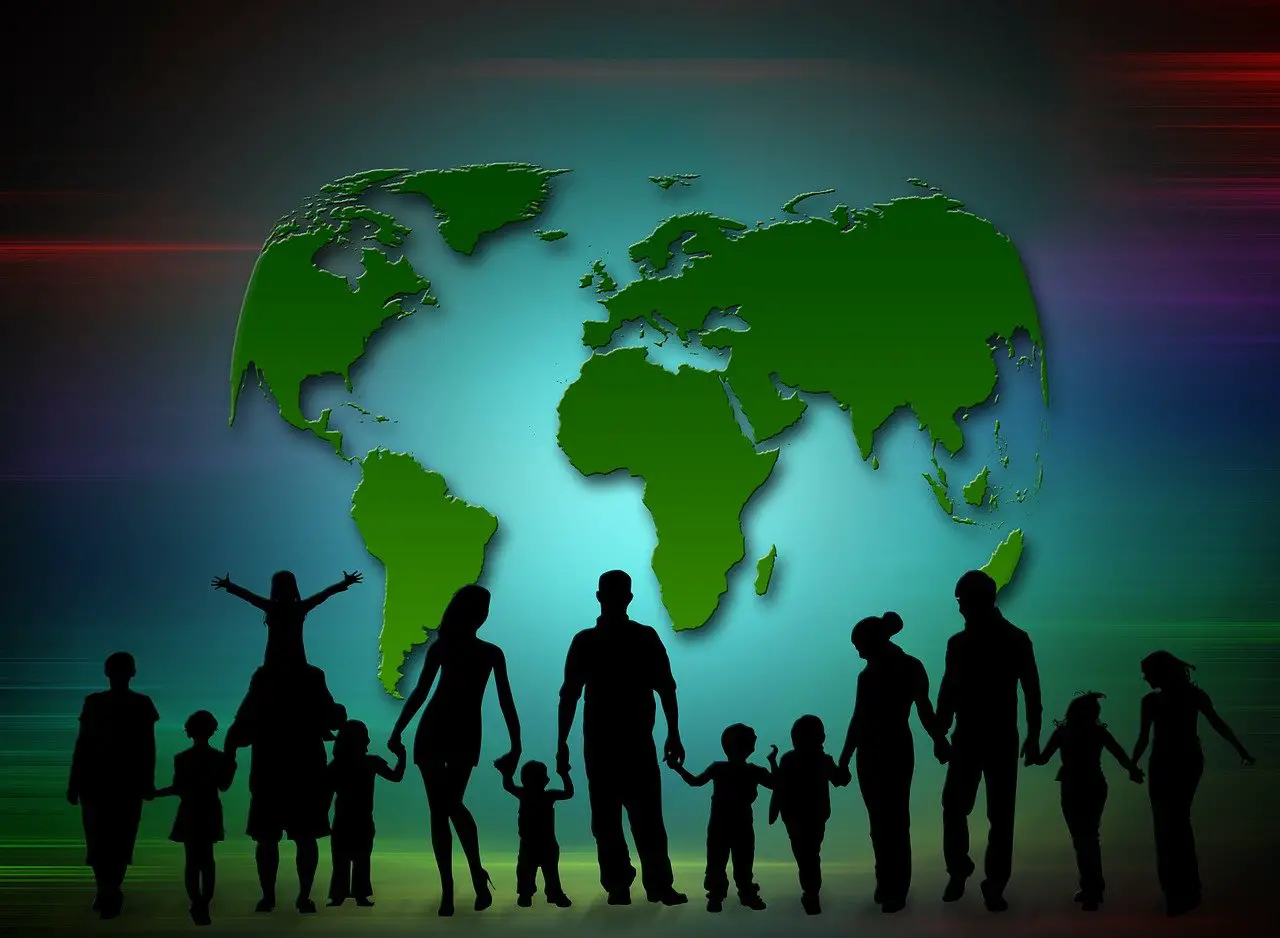Congratulations on your decision to adopt a Korean baby! Bringing a child into your life is a meaningful and fulfilling journey, and by choosing to adopt from Korea, you are embarking on a unique adventure. In this article, we will guide you through the process of adopting a Korean baby, providing you with valuable insights, tips, and resources to make your adoption journey a smooth and joyful experience. From understanding the requirements to navigating the paperwork, from connecting with adoption agencies to preparing for parenthood, we will cover all the essential steps and information you need to know. So, let’s begin this beautiful journey of turning your dream of becoming a parent into a reality!
Understanding Adoption in Korea
Adoption culture in Korea has a long history and is deeply rooted in the country’s cultural and societal norms. Adoption is seen as a way to provide better opportunities and a brighter future for children who may not have access to the same resources in their birth families. It is often seen as a selfless act of love and a way to give a child a chance at a better life.
Eligibility requirements for adopting a Korean baby are set by the Korean government and adoption agencies. These requirements may vary, but generally, prospective adoptive parents must be at least 25 years old and married. Single individuals may also adopt under certain circumstances. It is important to note that each adoption agency may have additional criteria that they require.
Costs and fees associated with Korean adoption are an important consideration for prospective adoptive parents. The adoption process can involve various expenses, including application fees, home study fees, travel expenses, and legal fees. Adoption agencies can provide detailed information on the specific costs and fees associated with the adoption process.
There are different types of adoption in Korea, including domestic adoption, international adoption, and foster care adoption. Domestic adoption involves adopting a child within Korea, while international adoption involves adopting a child from Korea to another country. Foster care adoption allows prospective parents to provide temporary care for a child with the possibility of adoption.
Researching and Choosing an Adoption Agency
Selecting a reputable adoption agency is crucial in ensuring a smooth and ethical adoption process. It is important to thoroughly research and consider various factors when choosing an adoption agency. Look for agencies that have experience and expertise in Korean adoptions, as they will be familiar with the specific requirements and procedures involved.
Consider the agency’s experience with Korean adoptions. Look for agencies that have a track record of successfully matching families with Korean children. Reading reviews and testimonials from other families who have gone through the adoption process with the agency can provide valuable insights and information.
Another important aspect to consider is the agency’s accreditation and licenses. Adoption agencies should be accredited by the appropriate government bodies, which ensures that they adhere to strict guidelines and ethical practices. Verify the agency’s credentials and ensure that they are in good standing before proceeding with the adoption process.
Preparing for the Adoption Process
Preparing for the adoption process involves completing necessary paperwork and gathering required documents. Adoption agencies provide guidance and support throughout this stage, ensuring that all necessary documents are obtained and correctly filled out.
The paperwork involved in adoption can be extensive, but it is important to ensure that everything is completed accurately and in a timely manner. This includes completing application forms, providing personal information, and submitting medical and financial documents. It is crucial to pay close attention to the requirements outlined by the adoption agency to avoid delays or complications.
In addition to paperwork, prospective adoptive parents will also need to undergo a home study process. A home study is conducted by a licensed social worker or agency representative to ensure that the adoptive home is safe and suitable for a child. This process may include interviews, home inspections, and background checks. It is important to be open and honest during this process and to prepare the home to meet the necessary requirements.
Taking adoption education courses is also an integral part of preparing for the adoption process. These courses provide valuable insight into the challenges and joys of adoption, as well as important information on parenting techniques and understanding the unique needs of adopted children. Adoption agencies often provide access to educational resources and support groups to help prospective parents navigate their adoption journey.
Meeting the Eligibility Criteria
Meeting the eligibility criteria set by the Korean government and adoption agencies is an important step in the adoption process. These criteria are in place to ensure the well-being and suitability of prospective adoptive parents.
Age and marital status requirements generally stipulate that adoptive parents must be at least 25 years old and married. However, single individuals may also be eligible to adopt under certain circumstances. It is important to review the specific criteria outlined by the adoption agency to determine eligibility.
Financial stability and sufficient income are important factors in the eligibility process. Adoptive parents must demonstrate that they have the means to provide for a child’s needs and ensure their well-being. This may involve providing financial records, proof of employment, or other supporting documentation.
Background checks and criminal record clearances are typically conducted as part of the adoption process. This is done to ensure the safety and welfare of the child. Prospective adoptive parents should be prepared to provide references and undergo thorough background checks, including fingerprinting and interviews with law enforcement agencies.
Meeting the medical and health requirements set by the adoption agency is also crucial. This may involve obtaining medical reports, undergoing medical examinations, and providing proof of physical and mental health stability. Adoption agencies will typically provide guidance on the specific medical and health requirements that need to be met.
Understanding the Home Study Process
The home study process is a crucial step in the adoption journey and involves working with a licensed social worker or agency representative. The purpose of the home study is to assess the suitability and readiness of the adoptive home and family.
During the home study process, a social worker will conduct interviews with the prospective adoptive parents. These interviews aim to gather information about their personal background, motivations for adoption, parenting style, and support systems. It is important to be open and honest during these interviews, as the social worker needs to accurately assess the family’s ability to provide a nurturing and stable environment for a child.
A home inspection is also part of the home study process. The social worker will visit the adoptive home to ensure that it meets safety standards and provides a suitable environment for a child. This may involve checking for adequate space, child-proofing measures, and general cleanliness. The social worker may also interview other family members living in the home.
Preparing for the home study process involves ensuring that the adoptive home meets the necessary requirements. This may involve making any necessary repairs or improvements to ensure a safe and welcoming environment for a child. It is important to communicate openly with the social worker and ask any questions or address any concerns that may arise during the process.
Navigating the Matching Process
The matching process is a significant milestone in the adoption journey, as it involves finding the right child for a prospective adoptive family. In Korea, the matching process is typically conducted by the adoption agency, and several factors are considered to ensure a successful and compatible match.
Understanding the Korean adoption matching process is important for prospective adoptive parents. The adoption agency will consider factors such as the adoptive parents’ preferences, the child’s needs, and any specific requirements outlined by the Korean government. The agency will work to identify potential matches based on these factors.
Creating an adoption profile is an important part of the matching process. This profile showcases the adoptive family and provides information about their background, interests, and the type of child they hope to adopt. The adoption agency will use this profile to help find a suitable match and share it with Korean officials.
The waiting period for a match can vary and is dependent on various factors such as the availability of children, the adoptive parents’ preferences, and the specific requirements set by the Korean government. It is important to remain patient during this time and trust that the adoption agency is working diligently to find the right match.
Completing the Adoption Paperwork
Completing the necessary adoption paperwork is a crucial step in the adoption process. The adoption agency will provide guidance and support throughout this stage to ensure that all required documents are obtained, translated, and notarized.
Understanding the legal documents required is important for prospective adoptive parents. These documents may include birth certificates, marriage certificates, financial statements, and various consent forms. It is important to thoroughly review the requirements outlined by the adoption agency and provide all necessary documents in a timely manner.
Working closely with the adoption agency and legal representatives is essential during the paperwork stage. The agency will guide prospective adoptive parents through the process, ensuring that all necessary paperwork is completed accurately and submitted to the Korean government for review and approval. It is important to communicate openly with the agency and seek clarification or assistance whenever needed.
Translation and notarization of documents is required for the adoption process. All documents must be translated into Korean and notarization should be obtained to ensure their authenticity. Adoption agencies often have established relationships with translators and notaries who specialize in adoption paperwork, making this step more efficient and streamlined.
Submitting the completed paperwork to the Korean government is the final step in this process. The adoption agency will work with the Korean government to review and process the paperwork, ensuring that all legal requirements are met. It is important to maintain open communication with the agency during this stage and promptly provide any additional information or documents that may be requested.
Traveling to Korea
After completing the necessary paperwork and receiving approval from the Korean government, prospective adoptive parents can begin to prepare for their trip to Korea. Understanding the travel requirements and timelines is crucial to ensure a smooth and well-planned journey.
Travel arrangements and accommodations should be organized well in advance of the trip. This may include booking flights, arranging transportation within Korea, and securing accommodations. Adoption agencies often have established relationships with travel agents or can provide recommendations for reliable and trusted travel services.
Preparing for cultural aspects and etiquette is important when traveling to Korea to meet the baby for the first time. Research and learn about Korean customs, language, and traditions to show respect and understanding. This can also help to build a connection with the child and their cultural background.
Meeting the baby for the first time can be an incredibly emotional and joyous experience. It is important to approach this meeting with an open heart and mind, ready to bond and begin forming a relationship with the child. Take your time to get to know the baby, offer comfort and support, and be patient as everyone adjusts to this new chapter in their lives.
Bonding and Adjusting with Your Korean Baby
Building a strong bond with your Korean baby is crucial for their emotional well-being and development. Adoption can present unique challenges, and it is important to approach parenting with sensitivity, understanding, and patience.
Understanding the challenges of adoption is important for prospective adoptive parents. Recognize that the child may have experienced loss, trauma, or uncertainty in their early life. Providing a nurturing and stable environment, along with access to supportive resources, can help the child navigate these challenges and develop a strong sense of security and belonging.
Support systems and resources for adoptive families are available to provide guidance and assistance throughout the journey. Seek out support groups, counseling services, and educational resources that can help navigate the unique experiences and challenges of adoption. Connect with other adoptive families who understand and can offer support based on their own experiences.
Celebrating and embracing your child’s Korean heritage is an important aspect of parenting a Korean adoptee. Language classes, cultural events, and maintaining connections with the child’s birth country can help foster a sense of identity and belonging. Encourage the child to explore their heritage, learn about their Korean roots, and participate in cultural activities that celebrate their background.
Post-Adoption Procedures and Responsibilities
Finalizing the adoption in Korea is a crucial step in the post-adoption process. This involves completing any remaining legal requirements, obtaining the necessary travel documents and visa, and ensuring that the child’s adoption is fully recognized by both the Korean government and your home country.
Obtaining necessary travel documents and visas may involve working closely with the adoption agency, legal representatives, and the appropriate government authorities. This process can vary depending on the adoptive parents’ home country regulations. It is important to follow all necessary procedures and provide any required documentation in a timely manner.
Post-placement visits and reports are typically required after the adoption is finalized. These visits are conducted by the adoption agency or social workers to ensure that the child is adjusting well to their new family and environment. It also allows for ongoing support and guidance to be provided to the adoptive family if needed.
Connecting with other adoptive families can be a valuable source of support and friendship. Building relationships with other families who have gone through similar experiences can provide a network of understanding and guidance. Seek out adoptive family support groups, attend adoption seminars or conferences, and connect with online communities to share experiences and resources.





